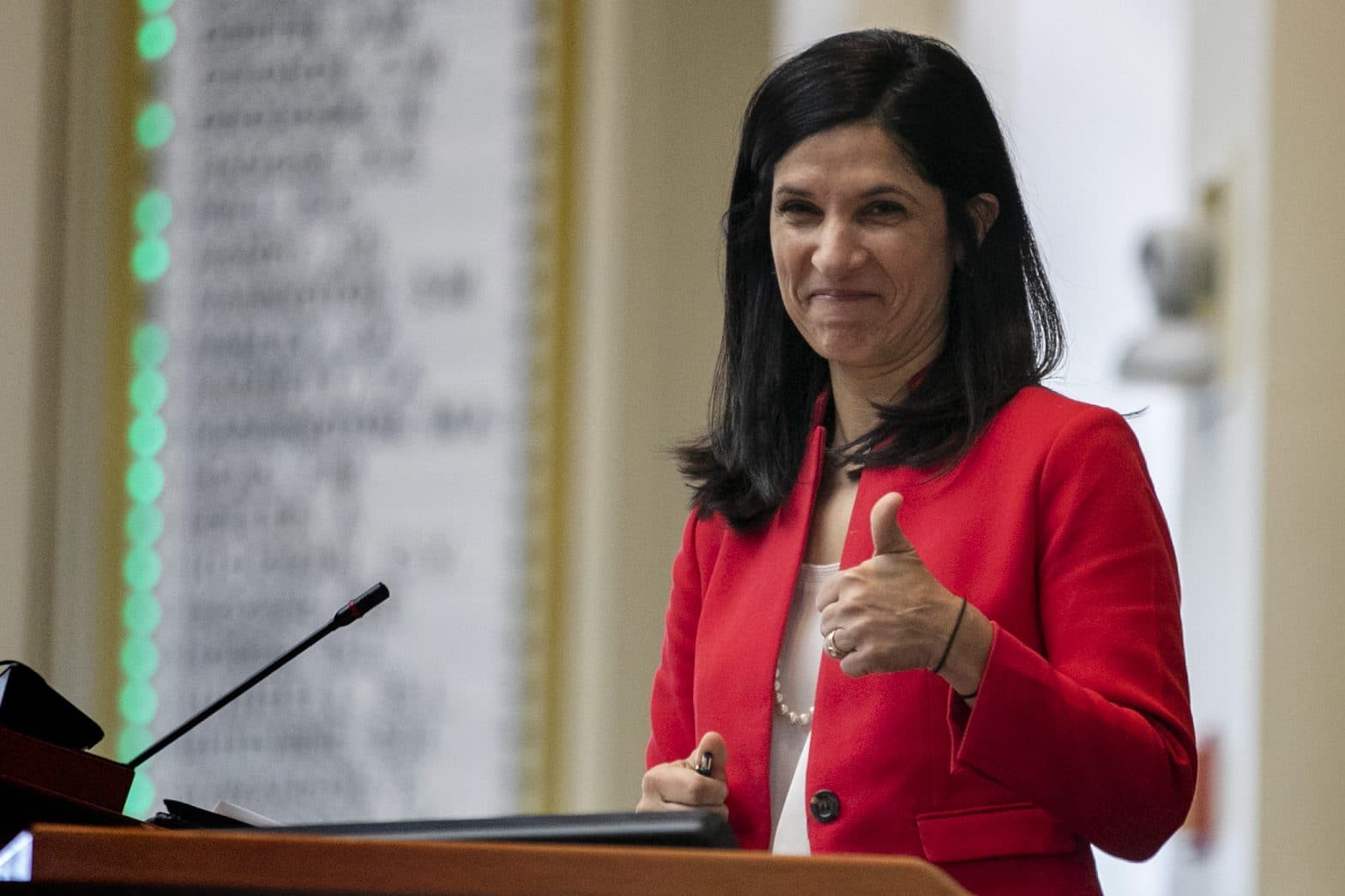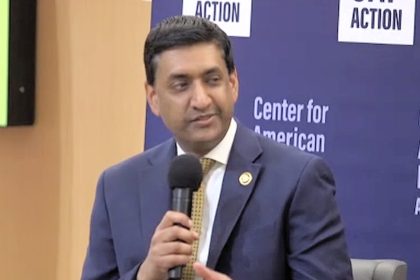Most Reasonable Path to Senate Flip Is Trouncing of Trump, Think Tank Says

WASHINGTON – The start of primary season tends to focus the mind on the race for the White House, but if Democrats want to retake control of the U.S. Senate as well, they need to be looking at a decisive Electoral College victory, a new analysis by Third Way says.
In a new report the public policy think tank suggests that if the Democratic party’s eventual nominee simply crosses the finish line at 270 — the minimum amount of electoral votes needed to win the presidency — Mitch McConnell will likely remain Senate Majority Leader.
If Democrats want to win back the White House and gain a Democratic Senate, writes political analyst David de la Fuente, they need to aim for something closer to 340 electoral votes in November.
Third Way’s appraisal of the situation begins by acknowledging that Democrats may very well win back the White House by rebuilding the traditional “Blue Wall” in the battleground states of Michigan, Pennsylvania, and Wisconsin.
But to flip the Senate, they need to create an updraft for candidates who are working to beat Republican incumbents in even redder territory.
“While voters used to split their ticket more often, the link between Presidential and Senate results has tightened over the past few cycles, reaching a whopping 100% in 2016,” de la Fuente says.
“If the top of the ticket doesn’t at least keep it close in states like North Carolina, Arizona, and Iowa, there’s little hope of Dems gaining a federal trifecta government to pass their agenda,” he adds.
Democrats currently have 47 seats in the Senate. They can’t take any state for granted, but considering 10 of their 12 senators up for reelection in 2020 come from states Hillary Clinton won in 2016, they have a good chance of holding at least 11 of these seats. The 12th seat is held by Sen. Doug Jones of Alabama.
While Jones is popular, he’s considered vulnerable because to win, he will have to outperform the top of the ticket. This, in a state that will almost certainly vote for Donald Trump for president by double digits.
That means Democrats should plan to try to flip four Senate seats currently held by Republicans — three because they already need them and one for insurance.
But the sledding won’t be easy. Pulling this off means defeating Republican incumbents, as no major retirements have opened up opportunities to flip seats.
According to de la Fuente, the five best targets are in states that appear most likely to vote Democratic at the presidential level in 2020—or at least be close.
These include Republican Sens. Cory Gardner, in Colorado, and Susan Collins, of Maine, who are trying to win reelection in states Hillary Clinton won in 2016.
“Democrats will probably need to win these two states at the presidential level to win the presidency, so they’re obviously appealing targets for Senate flips,” de la Fuente writes.
Two other Republican incumbents are running in states that Barack Obama won in at least one of his presidential victories.These are Sens Joni Ernst, in Iowa, and Thom Tillis in North Carolina.
The fifth target is a Romney-Trump state, but it’s one that shifted toward Democrats in 2016 and 2018.
Hillary Clinton lost Arizona by less than half the margin Obama did in 2012, and the state elected a Democratic senator in 2018. The incumbent is Sen. Martha McSally, who lost the 2018 Senate race, but was subsequently appointed to this seat after the death of Sen. John McCain.
“These are the five states that will determine whether a Democratic president can get anything done in 2021,” de la Fuente writes, getting to the heart of his argument. “If, as recent history predicts, the Senate results track closely with the top of the ticket, winning Senate seats in these five states would also require them to win the Electoral College with a total upwards of 340 votes.”
So what is that recent history?
Third way notes that over the last 20 years, the correlation between presidential and Senate results has increasingly tightened—leading up to 2016 when there appeared to be an ironclad locking of the two as intertwined elections.
Back in the Reagan-Bush days, the analysis says, the connection was relatively weak.
The highpoint was a 63% correlation in 1980 when the Reagan revolution swept in 10 new Republican senators on the president’s coattails. Despite this, Democratic senators were able to outrun the GOP’s large Electoral College wins in both 1984 and 1988, when less than half of all races had the same party win both contests in a state.
The connection between presidential and senate wins began to grow firmer with the election of President Bill Clinton in 1992.
Each party ended that election cycle with the same number of seats they started with, but the map shifted to align with the top of the ticket.
That meant the GOP started to gain more Senate seats in the South, while Democrats started picking up seats on the Pacific Coast, Northeast, and Great Lakes region.
By 2000, 71% of Senate races went to the same party that won the presidency in that state, jumping to 79% in 2004 with the GOP picking up several seats. The correlation continued to climb to 80% in 2008, and 82% in 2012.
The 2016 election brought a high-water mark that can’t be overtaken: 100%.
This made it the first election since the advent of the direct election of U.S. senators in which every senator who won belonged to the same political party that won their state at the presidential level.
“This pattern leaves no doubt that ticket-splitting in presidential election years is declining at a rapid rate,” de la Fuente writes. “While there are still a plethora of swing voters, many of them appear to be joining with more partisan voters in sticking with one party at the federal level once they have made up their minds in a given year—making it nearly impossible to get split results in federal elections statewide.”























